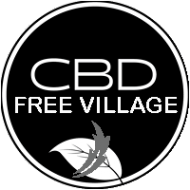NO SLEEP x THE RESULT
Insomnia is a condition characterized as an inability to fall asleep or problems staying asleep, which can be related to poor sleeping habits, depression, anxiety, lack of physical activity and certain illnesses. Insomnia, along with other sleep disorders currently affect around 25% of Americans today and is considered to be treatable, but not curable. Additionally, research has shown that people with chronic insomnia are more likely to develop or have depression and vice versa.
Cannabidiol (CBD), one of the main constituents of cannabis has been known to possess therapeutic and hypnotic effects that have also been known to improve sleep duration and the overall quality of sleep. A recent clinical review stated that a crossover trial comparing CBD (40, 80, and 160 mg) versus a placebo and nitrazepam (5 mg) among 15 insomniac subjects indicated that duration of sleep significantly improved post administration of the 160 mg/day CBD, but not in the smaller doses. The investigators did go on to explain that dream recall in these participants was reduced Zhornitsky et al., 2012. An additional study conducted by Lafaye, et al., 2018 would support the previous findings of Zhornitsky. The study looked to identify disturbances in circadian rhythm following CBD or THC administration and found consistency with clinical trials that state the therapeutic effects of CBD, but not THC to treat insomnia by improving the balance of circadian rhythm. This ultimately allows the body’s natural ability to control sleep and the regulation of sleep with the administration of CBD, although further research is still needed to prove these results.
SLEEP x SUBSTANCE ABUSE
Studies have also reported that 28% of those who deal with chronic insomnia have utilized alcohol as a sleeping aid. Additionally, a study reported that individuals who suffer from insomnia, or insomnia like symptoms more than two times per week were likely to develop traits of alcoholism over a years time. This report does not take into consideration narcotic abuse associated with insomnia, however it acts as an example of the issues people can face with sleep disorders. Cannabidiol (CBD) acts as a natural sleep aid that enables the regulation of your body’s natural sleep cycle, rather than masking your poor sleeping cycles with unhealthy substances such as alcohol and narcotics.
Although reporting on dose-dependent responses of CBD with insomnia have yet to be determined, often times full spectrum CBD products provide notable therapeutic responses with smaller doses versus the pure CBD isolate. This enables consumers to start very small and work their way into a perfect dose that optimizes the therapeutic applications for insomnia and sleep disorders.
References:
- Zhornitsky S, Potvin S. Cannabidiol in humans-The quest for therapeutic targets. Pharmaceuticals2012;
- Lafaye, G., Desterke, C., Marulaz, L., and Benyamina, A. (2018) Cannabidiol affects circadian clock core complex and its regulation in microglia cells. Addiction Biology, https://doi.org/10.1111/adb.12660.
